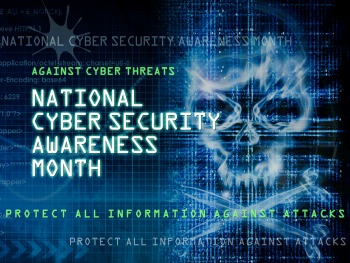The world has recently been hit by a nasty case of a bug known as “WannaCry”, a type of ransomware that asks for ransom in the form of bitcoins. By now, the word wannacry or ransomware are no longer foreign terms to people all over the world. This malware works by encrypting all the data in your gadget (computer, laptop or smartphone) leaving you unable to access your data through an app before asking you for a ransom for you to be able to decrypt your data. However, paying the ransom isn’t always an assurance that you’ll get your data back, so experts advise the unfortunate victims to refrain from giving in to their demands.
 Cyber attacks are now likened to natural disasters when it comes to the damage and impact they have to society. Businesses cease from operating because they can’t access their computers. Even government organizations like the UK’s NHS Trust were affected and medications and treatments of patients were temporarily put on hold as patient’s files can’t be accessed from hospital PCs.
Cyber attacks are now likened to natural disasters when it comes to the damage and impact they have to society. Businesses cease from operating because they can’t access their computers. Even government organizations like the UK’s NHS Trust were affected and medications and treatments of patients were temporarily put on hold as patient’s files can’t be accessed from hospital PCs.
Now, from an economist’s standpoint, we could say that the impact of the computer virus should be containable.
In terms on the impact on the wider economy, the best parallel to offer is probably that of a natural disaster, of course in economic terms and not in human terms.
Businesses are disrupted with some businesses, and some supply chains being disrupted more than others.
Infrastructure is destroyed in the case of a computer vires infrastructure is rendered obsolete, and the public and the private sector must invest.
Just, as a disaster spurs investment in better defenses in other unaffected regions, so a computer virus spurs investment in other unaffected businesses.
(Via: http://www.newsmax.com/Finance/HansParisis/computer-virus-gdp-wannacry/2017/05/15/id/790187/)
Similar to a natural disaster that can shut down businesses or other transactions until the storm has passed and recovery is under way, cyber attacks can cripple society big time. Just take a look at the UK. It’s a highly progressive nation but was still susceptible to these hacks.
To date, the WannaCry ransomware has infected at least 100,000 organisations across 150 countries making it easily the largest and most disruptive ransomware attack ever launched. It locked computers that run the NHS in the UK, Spain’s primary telco, Germany’s national railway and scores of other companies, factories and government agencies worldwide.
What’s been so disappointing about the news coverage is the overly simplistic guidance being offered up to organisations victimised by the malware. The “best” practices being touted boil down to downloading the Microsoft Patch, updating antivirus signatures and backing up critical files, often.
Everyone panics at the height of these attacks but the real struggle (and damage) is actually in its aftermath (like data recovery during disasters). How do you really start when everything you have is now gone? Such a difficult situation to be in but as of date, over 100,000 organizations has been infected by WannaCry last month.
It’s time to move beyond sound bites (“just download the patch”) and start thinking about how organisations can minimise the downtime caused by ransomware. Unfortunately, even if a company patches the operating system, updates the latest AV signature and has a regular offsite or cloud backup solution, they can still be infected with zero-day attacks. And it will still take days and perhaps weeks to recover.
Undoubtedly, WannaCry will embolden new cybercriminals to develop new strains of ransomware and presumably demand even higher ransoms. Sadly, the massive WannaCry before it, and there will be, most certainly, many more to come.
(Via: http://www.information-age.com/real-damage-ransomware-attack-felt-downtime-123466541/)
The sad thing about ransomware attacks is that despite already finding the kill switch, you can be sure it will strike back with even more vengeance in the near future. While there is little you can do once you unknowingly open that one malicious email, you can protect yourself from it now and reduce your chances of becoming a victim whether you are a lonesome individual or a big business or organization. Simple acts like updating your OS can save you from this one hell of a nightmare. Securing data backups can also ensure you are not empty handed even after all your data were encrypted. It’s a big help in the face of a ransomware attack or even a natural disaster like hurricanes, floods, or earthquakes.
If you want to learn more about recovering files from damaged hard drives, kindly check out this link: https://www.harddrivefailurerecovery.net/disaster-recovery-and-recovering-fire-damaged-hard-drives/ for accidents caused by a fire. If you’re dealing with water, this article may help: https://www.harddrivefailurerecovery.net/hard-drive-gets-water-damaged-what-to-do/.
